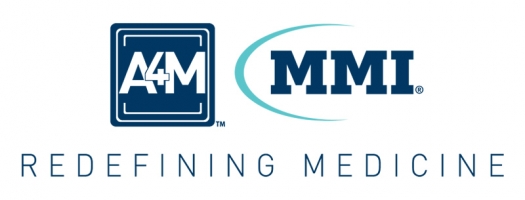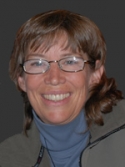a4mlogo.jpg

American Academy of Anti-Aging Medicine
A4M held their spring congress in Fort Lauderdale, April 12-14, 2018. It was attended by many doctors, naturopaths, nurse practitioners and interested public. Many of the presentations are summarized below.
Topics included Alzheimer's, Upstream Health Intervention, Cannabis, Autism, Hormones, Cancer, Regenerative Medicine, and Aesthetics.
If you are interested in attending future A4M Congress events visit the A4M website.
Dr. Jill Carnahan, MD
Mycotoxins and Cognitive Impairment: Assessing and Treating the Toxic Brain
Dr. Carnahan shared a personal story of getting cancer and Crohn’s disease due to mold in her medical clinic. In order to detoxify it is important to test for toxins, look at the history of the patient, biomarkers and look at the signs. If mold is the culprit then the patient must move out of that environment to heal. This means leaving everything behind that has been contaminated by the spores.
She uses drugs that are binders, fish oil, clay, charcoal and citrus pectin. It is vital to support the elimination organs including the liver and gall bladder. Dr. Carnahan also tests the gut to see if leaky gut is an issue. There is a low mold diet on her website; see “I’ve Been Exposed to Mold – Now What?”.
Raun Kaufman
Breakthrough Strategies for Autism Spectrum Disorders
A diagnosis of autism is most difficult for a parent to hear about their child. Many practitioners tell the parent that their child has no chance of a normal life and future.
As a child, Raun Kaufman was diagnosed similarly. His parents, rather than looking for an institution for him, created a plan to help Raun escape his world. They participated in his activities rather than trying to get Raun to change and be a part of their world. They supported Raun in every way possible and today he is running the Autism Treatment Center of America. This is a facility that helps other families have the same outcome as the Kaufmans.
Autism makes it difficult to recognize patterns and filter out all the details the sensory organs are experiencing. As a result, repetitive behaviors are a way to cope and deliver predictability. The parents mimic the behaviors, called Joining, which creates connection around a common interest. Once a connection is made, the child will be clear when they are ready for a new challenge (green light) or when they are not (red light). This action is honored. This is called the Motivation Principle. Raun has written a book, Autism Breakthrough as a manual for parents.
Daniel Amen, MD
Super Charge Your Brain, Reverse Memory Loss and Remember What Matters Most
Dr. Amen has several clinics around the United States and has written many books, with the most recent being Memory Rescue.
He tests the brain using the SPECT imaging system to determine blood flow and activity. Traumatic Brain Injury (TBI) can cause physical and emotional issues. Young people should not play football or do “headers” in soccer. Drug abuse and Alzheimer’s also will show up on the SPECT.
He uses the acronym of BRIGHT MINDS as a guide. “B” stands for blood flow. “R” for retirement and aging. “I” for inflammation. “G” for genetics which can be a wake-up call. “H” stands for head trauma. “T” for toxins. “M” stands for mental health. “I” for immunity and infections. “N” stands for neuro-hormone deficiency. “D” for diabesity involving obesity and diabetes. Lastly “S” stands for sleep.
These are all issues to be considered to improve the brain you have. Your brain history is not your destiny. You are not stuck with the brain you have. Incredible recoveries can happen.
Barry Ritz, PhD
Discoveries in Polyphenol Research and Neurocognitive Health
What are polyphenols? They are the colors in your fruits and vegetables. Dr. Ritz reported on research using cranberry, blueberry and strawberry. There is a lot more to a polyphenol than simply the anti-oxidant piece. Studies have shown improvement of endothelial tissue from cranberries and grape seeds. Strawberries showed a 21% improvement of insulin resistance. Other research showed cognitive improvement with polyphenols.
Sebastian Brandhorst, PhD
The Science and Clinical Application of the Fasting Mimicking Diet
There has been a lot of discussion regarding diets and longevity. Some people propose calorie restriction will prolong life. Research has supported the theory that a diet high in protein results in a shorter lifespan.
The Fasting Mimicking Diet consists of nut bars, soups, kelp crackers, and teas and liquids. It offers diminished daily calories for 5 days. This is then repeated one and two months later.
Patient documents show fat loss, less cancer, less inflammation, increased cognitive function, longer lifespan, improved motor coordination, increased working memory and long term memory. People who were the most out of balance saw the greatest improvement. Participants found that it was much easier to comply with the diet in comparison to water fasts.
Brennan Spiegel, MD
Opioids Haven’t Solved Chronic Pain. Maybe Virtual Reality Can
Dr. Spiegel has worked with a tremendous number of patients who suffer from chronic pain. He has developed a program which uses virtual reality, the Samsung Gear VR, headsets, and special virtual reality programs that are personalized. These programs include helicoptering over the fjords of Iceland, being on a beach, and even real life streaming of the patients home environment.
The brain can only operate in one reality at a time so when the patient is participating they are not concentrating on their pain. In a way the brain is hijacked by the experience and they are finding it continues to help after the treatment.
It has proven to be very effective for burn patients when they are receiving bandage replacement. On average patients experience a 35% pain reduction.
With the opioid epidemic, something needs to be offered as an alternative. Statistically, there are the same number of deaths from opioid abuse as if a loaded 747 jet liner crashed every 5 days for the past 10 years! This is catastrophic. They are looking at developing a virtual reality pharmacy that would have a large variety of virtual reality programs so the treatment can be personalized.
Rudolf Tanzi, PhD
The Healing Self: A Revolutionary Plan for Wholeness in Mind, Body and Spirit
Alzheimer’s symptoms begin when the hippocampus becomes compromised. The hippocampus is a small organ in the center of the brain. As we age we lose that childhood enthusiasm. The WOW moments, if you will. We need to guard against complacency and make an effort to remain excited about life and living. It is vital to have moments of “joy” in life.
Many researchers have claimed the amyloid plaques and tangles that are typical in cases of Alzheimer’s are actually protective mechanisms. Dr. Tanzi is of the belief that amyloids begin to form 15 to 20 years before a person becomes symptomatic. This can happen more often when a person daydreams and is in the default mode. In order to avoid this, be aware, be in the present, learn new skills and rewire yourself.
Cat’s Claw, Oolong tea, Ashwaganda, and Nicotinamide Riboside have also proven to be helpful in decreasing amyloid and tangles. Keeping the microbiome of the gut healthy can help protect against inflammation in the brain and ultimately lower incidence of Alzheimer’s. He recommends exercise, good sleep, meditation, and new learning experiences.
He has written many books with Deepak Chopra. The latest book collaboration is called Super Brain.
Additional speakers
Additional speakers included Marc Abreu, MD; William Clearfield, DO; Paul Anderson, NMD; Deepa Verma, MD; Andrew Campbell, MD; Mark Penn, MD; Douglas Spiel MD; Joseph Purita, MD; Sharon McQuillan, MD; Joseph Maroon, MD; Felice Gersh, MD; John Apsley, ND; DC, Mark Tager, MD; Rosa Pelton, RPh; Ferdinand Cabrera, MD; Cheryl Whitman; Arza Halim, MD; Stephen Eubanks, MD; Yan Trokel, MD; Zach Bush, MD; Asit Panja MD; Ronald Aung-Din, MD; Jeffrey Boone, MD; James La Valle, RPh; Sangeeta Pati, MD; Ron Rothenberg, MD; Mark Newman, MS; William Seeds, MD; Mark Rosenberg, MD; Tyler LeBaron; Sonoj Punnen, MD; Sahar Swidan, PharmD; and Jennifer Pearlman, MD.


